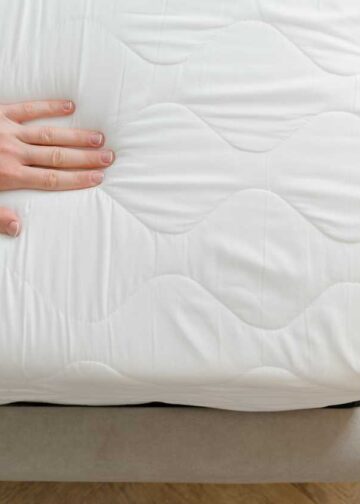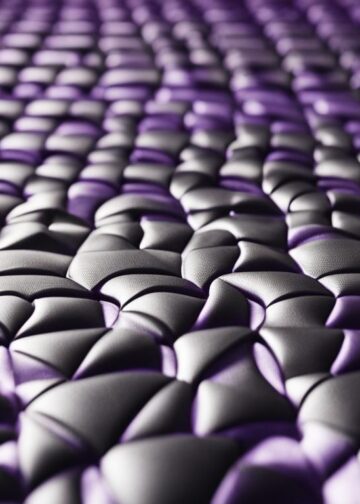It is likely that you’ve encountered photos of a minimalist bedroom featuring a floor mattress, essentially sans traditional bed. This concept has intrigued many (visually at least), prompting us to inevitably ponder: Is it beneficial for health or not?
![]()
The practice of placing mattresses directly on the floor, while not new and reminiscent of historical Bohemian lifestyles, is considered “modern” by some. The minimalist trend propels the belief that simplicity outweighs all, eliminating the need for features like a bed frame.
What are the disadvantages of sleeping on the floor?
Opinions vary regarding this trend, with some in favor and others against. While sleeping on the floor can offer benefits, particularly for individuals experiencing back pain or sciatica, certain drawbacks should be taken into consideration. In this article, we will explore the primary cons of sleeping on the floor.
Daily movement of the mattress:
Sleeping on the floor necessitates using a futon. Typically between 10-14 inches thick, futons are traditionally filled with organic cotton and straw. Positioned on a tatami, a woven straw mat, the futon extends slightly beyond the mat’s edge and can be rolled up post-use. Crucially, the futon must be aired out daily since cotton absorbs moisture during sleep.
Cost of acquiring a quality futon:
Lower-cost futons typically contain synthetic rather than natural cotton, restricting breathability. Organic fibers, which are more hygienic, substantially increase the futon’s price. Over time, the fibers compact and harden, potentially exacerbating existing back issues when combined with floor sleeping. Some futons include latex to mitigate this hardening, although this addition also drives up the cost.
Reduced cleanliness:
The floor ranks among the dirtiest areas in the home, attracting insects and spiders. Traditional mattresses act as a barrier between the floor’s surface and our bodies, protecting against insects, spores, animal dander, allergens, etc. Carpeted floors tend to harbor more dust, whereas wooden or ceramic floors might be easier to keep clean and allergen-free. Daily room ventilation is essential to minimize dust and mite intrusion.
Challenges of couple sleeping:
Relationship dynamics may be affected as sleeping together on the floor can be excessively uncomfortable.
Unsuitable for seniors or individuals with specific health conditions:
According to Dr. Carter, elderly individuals may struggle to sleep comfortably and rise the next day. Traditional sleeping postures like fetal or flat-backed, supported by pillows, might be compromised on the floor, aggravating cervical or lumbar issues and affecting mobility.
Adaptation requirements:
Although a sagging mattress can be detrimental for those with spinal issues, floor sleeping might not be the optimal alternative. Often, a firm mattress that better supports back alignment without the hardness of the floor is recommended.
Increase in cold:
In cooler seasons, maintaining warmth becomes a challenge since the floor is a cold entity. A futon provides insulation but not warmth, necessitating additional blankets for comfort.
Conclusion:
While suitable for some, particularly younger individuals inclined towards minimalism, floor sleeping may present more disadvantages for couples and older adults.
The drawbacks of floor sleeping stem from poor sleeping posture. Explore this video to understand how your sleeping posture impacts your health.
Sleeping on the floor compromises the spine’s natural slight concavity, and the organ weight pushes down the spine into an unnatural curve. For this reason, among others previously discussed, it is prudent to thoroughly weigh the pros and cons before opting to sleep on the floor.
References
Is sleeping on the floor good for you?
Having Occasional Back Pain – Sleeping On The Floor: Crazy or Comfy?
Sleeping positions: A discussion of pros and cons
- “Sleep Like Royalty: Discover the Lucid 12″ Cal King Mattress!” - February 14, 2024
- “Is Your Mattress Past Its Prime? Find Out Now!” - February 11, 2024
- Sleep Better Every Season: Seasonal Sleep Tips - January 26, 2024









